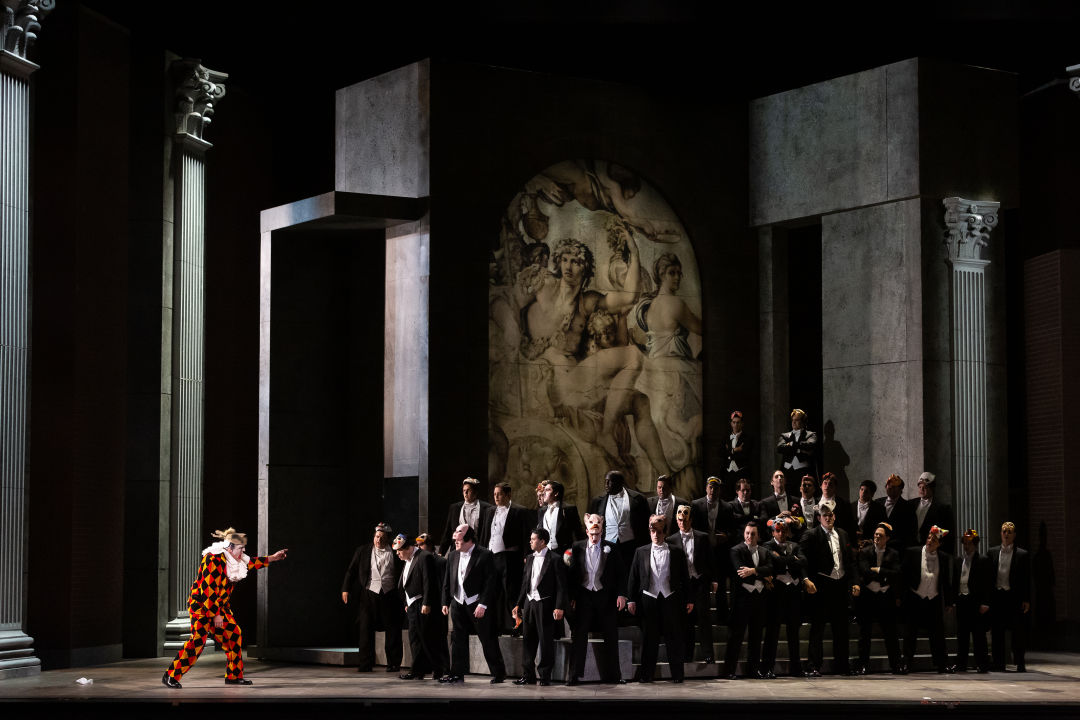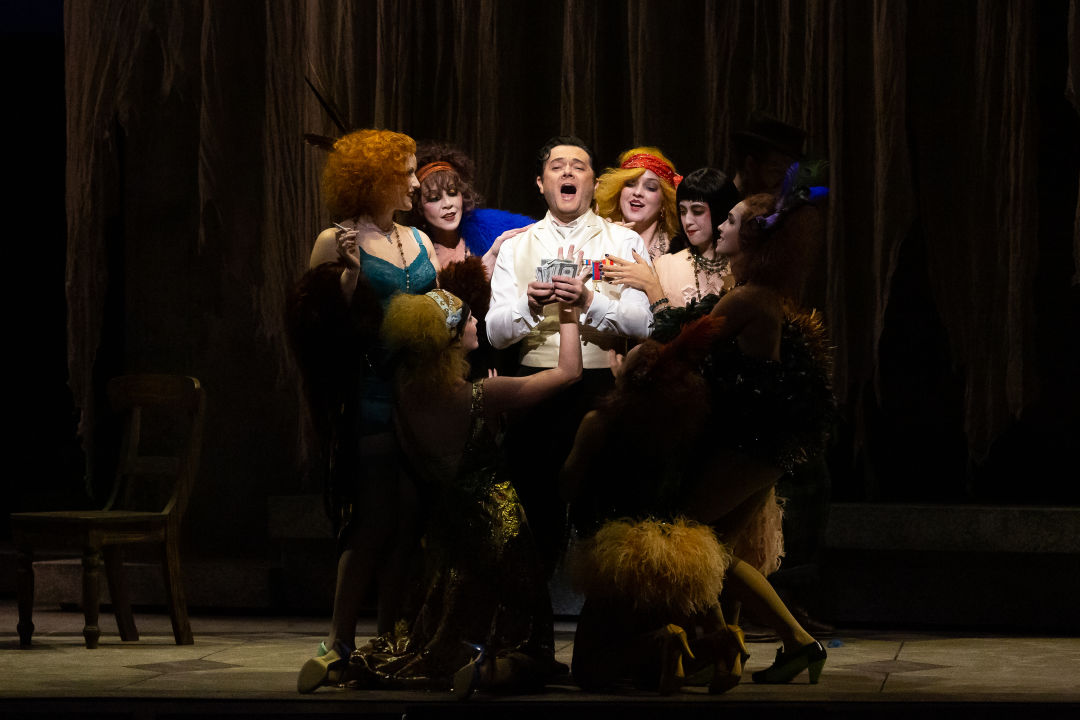Review: Rigoletto Makes Art Out of #MeToo

Image: Lynn Lane
Houston Grand Opera’s production of Verdi’s Rigoletto delivers a triumphant season opener that overcomes its problematic plot. A co-production with Atlanta Opera and the Dallas Opera, HGO recasts the standard in 1920s Italy, a choice intended to bring the action just close enough to the present to critique contemporary America.
The opera tells the story of a court jester’s ill-fated attempt to protect his daughter from predatory men. More broadly, the opera pessimistically depicts the mistreatment of the poor and the powerless in a society where no one is held accountable for their wrongdoing.
A grim subject to be sure, but HGO’s production is a feast for the eyes, with stunning costumes and sets that display both the grit and glamour of the era—and above all, a feast for the ears. Verdi’s strong orchestration is well-served by the HGO orchestra under the direction of Jordan de Souza in his house debut. The woodwind solos in the third act deserve special recognition.
The outstanding vocal cast delivers strong performances from top to bottom. Baritone Michael Mayes, in the title role, sings with great intensity and pathos, drawing the audience in to Rigoletto’s pain. His empathetic portrayal captures the jester's vulnerability as an outcast and the only protector of his daughter, Gilda. With moments of stirring emotion in each act, Mayes is the moral compass of the opera, laying bare the indignity of it all.
Soprano Mané Galoyan shines as Gilda, conveying her innocence and purity of heart through her luminous tone. Her rendition of “Caro nome” enraptured the audience. As the orchestra rested in the aria’s final moments, Galoyan stunned with her flexibility and control, singing with exquisite intimacy that still resonated in a space as large as the Wortham. The opera’s bewildering conclusion—Gilda’s untenable decision to sacrifice her life for the lecherous Duke of Mantua—is made as coherent as possible through Galoyan’s earnest performance.

Arturo Chacón Cruz as Duke of Mantua surrounded by HGO chorus members.
Image: Lynn Lane
Tenor Arturo Chacón-Cruz is likewise masterful as the Duke, nailing the opera’s most famous aria,“La donna è mobile.” He brings swagger and charm to each phrase and hits every high note with verve and virility. It’s easy to imagine how he can woo vulnerable women so easily. Unfortunately for him, he so convincingly embodies the repugnant role that some in the audience began to turn against him, yielding a few boos at the curtain call that had everything to do with the character and nothing to do with his fine performance.
The libretto’s more despicable elements are handled without kid gloves. Indeed, this production makes clear that Rigoletto’s fear for Gilda’s safety are completely founded. The mob of courtiers, played to crude perfection by the men of the HGO chorus, embody unrestrained male lust and aggression. The opening ball scene exhibits their base debauchery—groping women left and right, taunting the husband of the Duke’s latest prey—leading to extreme brutality in the beating and murder of Count Monterone, the one man who dared speak out against the Duke’s utter depravity. As the music cadenced at the close of this scene, Friday’s audience was silent. The uncomfortable stillness in the traditional moment for applause betrayed the room’s discomfort at the moral outrage just witnessed.
The opera’s finest moments come in the third act when the reprehensible mob is banished from the stage. The famous quartet depicting Rigoletto and Gilda overhearing the Duke and his latest lover Maddalena (in a feisty and passionate performance by mezzo-soprano Zoe Reams) is the musical highlight of the opera, overwhelming the listener with the sublime interweaving of the quartet and orchestra. The euphoria soon gives way to horror as the all-too-preventable tragedy unfolds. Robert Wierzel’s inspired lighting design intensifies the opera’s violent final moments. As the curtain falls, Rigoletto has certainly left its mark thanks to the outstanding work of the cast and crew, even if the implausibility and injustice of the story continue to frustrate.
Thru Nov 1. Tickets from $20. Wortham Center, 501 Texas Ave. 713-228-6737. More info and tickets at houstongrandopera.org.




